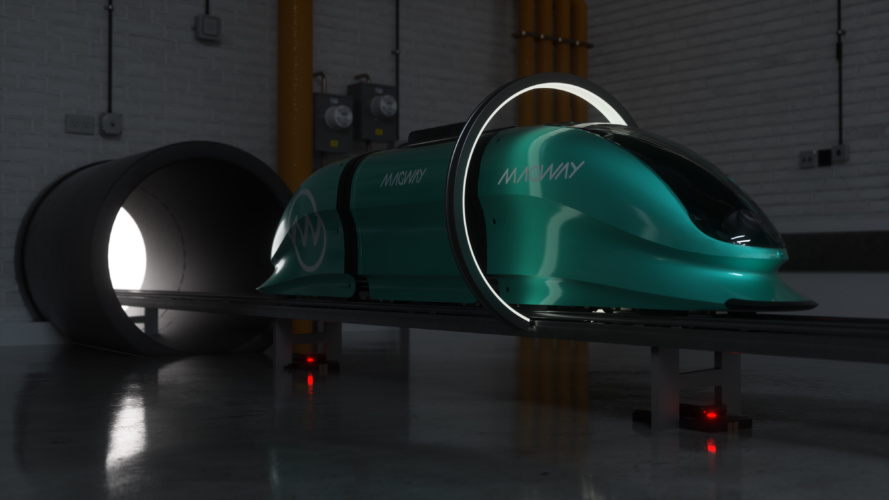The concept of an environmental tipping point was first introduced 20 years ago by the Intergovernmental Panel on Climate Change (IPCC). Now, some estimate that we are a mere decade away from going over the tipping point with environmental damage irreversible., some scientists even say that we could cross the global warming threshold by 2027.
What can be done to stop this?
The Covid-19 pandemic has pushed the topic of sustainability further into the spotlight, with people and companies alike taking responsibility for their impacts and inventing innovative ways to mitigate our damage on the environment.
Improved connectivity, IoT devices, and smart buildings have dominated the smart cities conversation for several years, but with the environmental challenges we face clear in the results of the latest IPCC report, we need to look at evolving smart cities into sustainable cities. The concept of sustainable cities focuses on the wider notion that cities can develop a symbiotic relationship with their hinterland to become sustainable and self-reliant - almost like an industrial ecosystem.

Society is already on its way to bringing the smart city concept to life. In Saudi Arabia, The Line is a 170km-long linear urban development of multiple, hyper-connected communities, with walkable neighbourhoods integrated with public parks and natural landscapes. Pioneering concepts such as this are highlighting the myriad of ways in which changes can be made to accomplish our climate goals.
UK Government legislation aims to cut emissions by 78% by 2035. The Government will also ban the sale of internal combustion engine vehicles by 2030. This, combined with other regulations such as London’s low and ultra-low emission zones, is bringing to light the importance of change, and our ability to achieve it if we try.
Crate expectations: innovations in last-mile delivery technology
However, despite these positive changes, this doesn’t solve every issue. Due to the mass use of delivery vehicles, the retail industry needs environmental progression to improve the colossal carbon footprint it is responsible for. Consumers are becoming increasing aware of sustainable products and are keen to ensure that they are supporting businesses which align with their personal environmental goals. As such, consumer demands are now resulting in businesses being held increasingly accountable for their environmental agendas through science-based targets. Not only this, but government legislation is also ensuring logistics businesses adjust their sustainability goals to fuel greener transport systems.
The track to sustainable cities could accelerate with retail
The Magway system could solve a multitude of problems stemming from urban retail deliveries. Here, we are developing an all-electric zero-emissions delivery system that can replace commercial road vehicles such as HGVs. Magway doesn’t rely on battery power and can, when connected to a renewable energy source, deliver goods without releasing any emissions into the atmosphere.
With fewer HGVs on the road, there will be far less road congestion, meaning roads will be quieter, making commuting easier for the general public. Alongside this, fewer vehicles on the roads will result in quieter cities, creating a preferred living environment, with an increased availability for green spaces, due to the reduction in need for parking spaces. With fewer internal combustion engine (ICE) vehicles on the road and a rise in green spaces around cities, there will also be much less air pollution. According to the Department for Transport, road transport contributes to around a fifth of the UK’s total greenhouse gas emissions and is officially cited by Public Health England as one of the biggest environmental threats to health in the UK, with up to 36,000 deaths a year attributed to long-term exposure.
Where to start when it comes to sustainability?
To answer this, we take a look at the very fabric of the city itself and the use of solutions such as smart energy grids, integrated, zero-carbon delivery systems, and carbon neutral construction materials. Modern Methods of Construction (MMC) and additive manufacturing or 3D printing is also taking the spotlight in the sustainable sector. Magway is modelling the system in a digital twin to enable all of these opportunities to be investigated and to ensure iterative learning. Thus, Magway can make use of innovative materials and techniques across all the parts of the system, immensely reducing the carbon footprint and energy that would come from traditional manufacturing.
As the world’s population grows and becomes increasingly urbanised, we have a duty to both ourselves, future generations and the planet to focus on bringing the sustainable city concept to life. Smarter cities are a step in the right direction, but until we embed a firm drive towards sustainability in building these cities, we cannot hope to achieve the ultimate goal of creating not only cleaner and healthier living environments, but hopefully mitigating the impact our urban lifestyles are having on the environment as a whole.










Comment: Engineers must adapt to AI or fall behind
A fascinating piece and nice to see a broad discussion beyond GenAI and the hype bandwagon. AI (all flavours) like many things invented or used by...